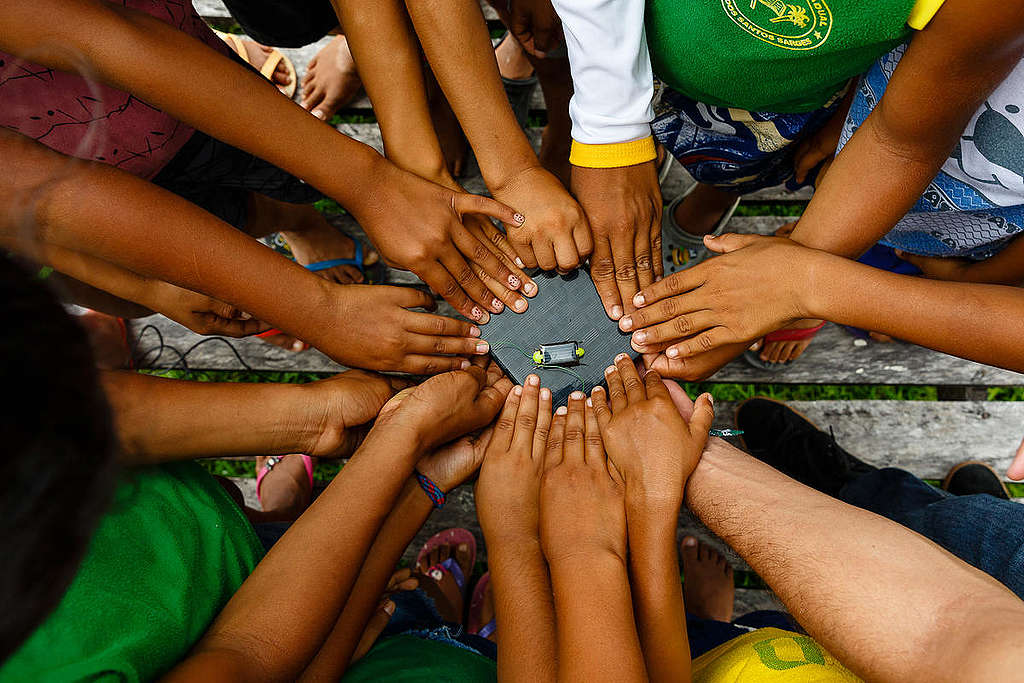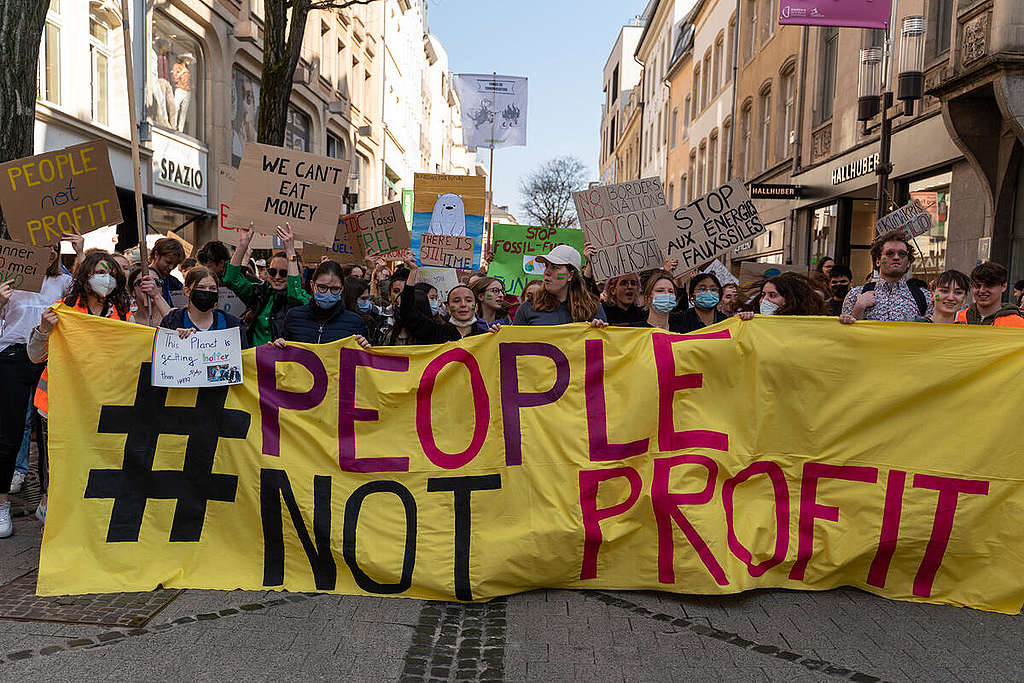How does a cooperative in Venezuela price all vegetables and fruits the same? How does a group of feminists in Malawi navigate towards a wellbeing economy amidst debts and natural disasters?
Mainstream stories tend to make us believe that endless growth is a sign of progress. With the end of the year approaching, we’ll soon learn how much GDP, or Gross Domestic Product, our countries have produced this year. But is this really what matters? We don’t think so.
 Training about solar panel for communities in the Bailique archipelago (Amapá, Brazil). © Diego Baravelli / Greenpeace
Training about solar panel for communities in the Bailique archipelago (Amapá, Brazil). © Diego Baravelli / GreenpeaceFor the past few months, the team behind Greenpeace’s Alternative Futures has been engaging with communities, academics and organisations, such as the examples above, who are living or advocating for societies that prioritize cooperation and wellbeing.
Together, we’ve crafted a three-chapter publication titled Growing the Alternatives: Societies for a Future Beyond GDP to showcase some of these societies and the challenges GDP pose as the primary measure of success for our communities and economies.
What’s wrong with GDP?
 Youth For Climate Luxembourg (Y4C), along with Greenpeace Luxembourg and hundreds of people, took to the streets of Luxembourg calling upon the government to choose “People” over “profit.” © Frederic Meys / Greenpeace
Youth For Climate Luxembourg (Y4C), along with Greenpeace Luxembourg and hundreds of people, took to the streets of Luxembourg calling upon the government to choose “People” over “profit.” © Frederic Meys / GreenpeaceThe Gross Domestic Product is now the main economic index used by almost every country in the world to measure growth and development, regardless of whether they are beneficial or harmful to society and nature. Its narrow lens excludes core values such as wellbeing, fairness, and justice, while ignoring the essential contribution of unpaid care work and the negative impacts of climate change and inequality.
Shifting the focus from endless growth and profit to meeting the needs of both people and the planet puts us on the path towards a fairer and greener future.
There are alternatives: join the conversation!
But alternatives that go beyond GDP exist. In the course of our research on wellbeing economies, we’ve come across networks and projects such as the Sinaweya in Egypt and the Brazilian Semiarid Articulation (ASA) that put people and nature first before profit and endless growth.
Alternative Futures is all about listening to different voices and sharing multiple solutions to the climate and biodiversity crisis we are facing, providing space for everyone to come together.
That’s why we’re hosting a Live Event on Wednesday 22nd November at 4PM CET. Register for the Webinar.
During this event, we’ll have the opportunity to hear from communities that are adopting new ways of living, connecting human well-being and the environment, and challenging the current economic models that keep countries in debt.
We’re excited to hear the voices of our community. Please come with questions, as we’ll have time to address them.
As part of the space, we will present the complete collection of Growing the Alternatives: Societies for a future beyond GDP and introduce a thrilling new participatory tool we hope you’ll love.
Ready to join the conversation? Join us on 22nd November, and let’s keep growing #AlternativeFutures together!
Dorina de Jonge is an Engagement Strategist with the Alternative Futures project at Greenpeace International.

 1 year ago
162
1 year ago
162

